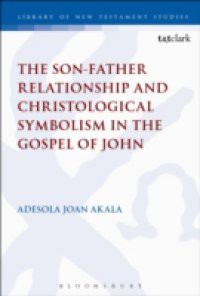This volume examines Johannine symbolism within the lens of Jesus' relationship with the Father. After demonstrating that the Gospel narrative symbolically portrays Jesus as the Son of God who is relationally inseparable from his Father, the study shows how the Son-Father Relationship (SFR) is at the center of the network of Christological symbols in the Gospel of John. Using an innovative narrative framework, this book unveils the creative and symbolic introduction of the SFR in the Prologue (Jn. 1. 1-18), its development through the words and actions of Jesus' teaching ministry within the Johannine narrative, and its culmination in the Prayer (Jn. 17); the SFR motif then concludes in the remainder of the Gospel. This narrative framework reveals how the SFR shapes the literary style and theological strategy of the Gospel, and acts as an integrative force by giving structure and cohesion to the Gospel's symbolic system. Two key features presented in this book are a theory of symbolism and a network of symbols. The specially formulated 'Theory of Johannine Symbolism' explains the theoretical and theological underpinnings of the Gospel's symbolic network, called 'John's Christological Symbology'. Through the symbolic network, the author of the Gospel fulfills the theological purpose stated in Jn. 20:31-that hearer-readers believe in Jesus the Christ, as the Son of God, and thereby experience eternal life.

